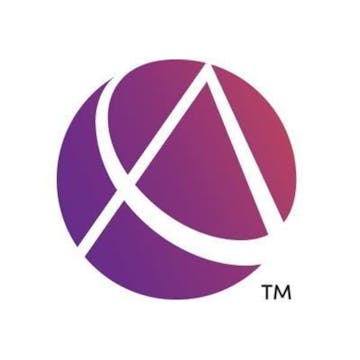
This is Course 2 in the Introduction to Blockchain course series.
Blockchain technology is in a period of exceptional growth, and the accounting profession will play a significant role in driving its adoption. Be part of the blockchain evolution with this course. Starting with a focus on the history and evolution of blockchain and bitcoin and then on to the characteristics of bitcoin, you will get a refresher on the fundamentals of money/currency and learn how bitcoin fits into the global business landscape. This course also demonstrates the unique characteristics of blockchain and bitcoin, so accounting and finance professionals...
Read more
Good to know
Save this course
Reviews summary
Comprehensive introduction to blockchain
Activities
Review Blockchain Fundamentals
Show steps
Review the basics of blockchain technology, including its history, evolution, and characteristics.
Browse courses on
Blockchain Fundamentals
Show steps
-
Read an introductory article or blog post on blockchain
-
Watch a short video or tutorial on blockchain
Read "Blockchain Revolution" by Don Tapscott and Alex Tapscott
Show steps
Read the book "Blockchain Revolution" to gain a comprehensive understanding of the potential impact of blockchain technology on various industries and sectors.
View
Blockchain Revolution: How the Technology...
on Amazon
Show steps
-
Purchase or borrow the book
-
Read the book and take notes
Develop a Simple Blockchain Application
Show steps
Create a simple blockchain application to apply your knowledge of blockchain technology and reinforce your understanding.
Browse courses on
Blockchain Applications
Show steps
-
Choose a project idea
-
Design the application
-
Implement the application
-
Test and deploy the application
Show all three activities
Review Blockchain Fundamentals
Show steps
Review the basics of blockchain technology, including its history, evolution, and characteristics.
Browse courses on
Blockchain Fundamentals
Show steps
- Read an introductory article or blog post on blockchain
- Watch a short video or tutorial on blockchain
Read "Blockchain Revolution" by Don Tapscott and Alex Tapscott
Show steps
Read the book "Blockchain Revolution" to gain a comprehensive understanding of the potential impact of blockchain technology on various industries and sectors.
View
Blockchain Revolution: How the Technology...
on Amazon
Show steps
- Purchase or borrow the book
- Read the book and take notes
Develop a Simple Blockchain Application
Show steps
Create a simple blockchain application to apply your knowledge of blockchain technology and reinforce your understanding.
Browse courses on
Blockchain Applications
Show steps
- Choose a project idea
- Design the application
- Implement the application
- Test and deploy the application
Career center
Blockchain Developer
Blockchain Engineer
Cryptocurrency Analyst
Blockchain Consultant
Auditor
Investment Banker
Cryptocurrency Trader
Financial Analyst
Accountant
Business Analyst
Data Scientist
Project Manager
Marketing Manager
System Administrator
Software Engineer
Reading list
Share
Similar courses
OpenCourser helps millions of learners each year. People visit us to learn workspace skills, ace their exams, and nurture their curiosity.
Our extensive catalog contains over 50,000 courses and twice as many books. Browse by search, by topic, or even by career interests. We'll match you to the right resources quickly.
Find this site helpful? Tell a friend about us.
We're supported by our community of learners. When you purchase or subscribe to courses and programs or purchase books, we may earn a commission from our partners.
Your purchases help us maintain our catalog and keep our servers humming without ads.
Thank you for supporting OpenCourser.


